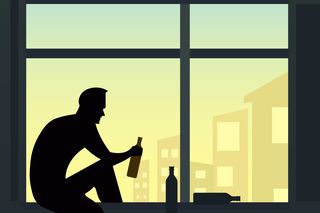What do Body&Soul and renaissance Florence have in common?
Festivals such as the Body&Soul Festival, have links back to the Renaissance period.
Summer festivals! Each year in June, thousands of spectators come together to participate in a vibrant showcase of music, visual art, and theatrical performance on the grounds of Ballinlough Castle, Co Westmeath. This type of celebration, what we call a festival, has become very popular during summer time in Ireland. However, many festivalgoers may not be aware of the historical roots of the festival.
For millennia, humans have taken part in rituals that celebrate special occasions inspired by nature, religion and historical events. Some examples include solstice festivals (summer and winter), Christmas pageants, a saint's day, and even royal weddings like the celebrity wedding of Britain's Prince William and Kate Middleton. This famous 2012 ceremony was so popular, it was watched by more than 24 million viewers across the world. There was a time in history when the festival became so popular that one took place nearly every month or sometimes more often in various cities around Europe.
This happened during an important period we call the Renaissance, specifically between the years 1450-1600. The Renaissance is known as a period that produced wonderful artists, musicians and inventors, such as Leonardo da Vinci. During this time, Europe was ruled by lots of different royal families, like the Windsor family of Great Britain. The most powerful of these families were the Habsburgs of Spain and the Valois of France. Both the Spanish and French kings competed with each other to see who could host the most splendid and colourful festivals.
Between the years 1564-66, King Charles IX sponsored more than 100 festivals throughout France. Can you imagine all that festival fun?
On the other side of the Mediterranean Sea, the Italian nobility were also busy organising summer festivals. The most common reasons for festivalling during the 16th century were saints' days, weddings, baptisms for royal children, and coronations (where a royal dignitary receives a prestigious title and an opulent crown). A very famous family in renaissance Italy, from a Tuscan city called Florence, were responsible for some of the most successful festivals in Europe. They were called the Medici. The Medici dukes were excellent at organising extravagant celebrations that included the performance of live music, theatrical plays, singing and dancing, comedies, banquet feasts, outdoor pageants, and even football tournaments.
Of course, the Medici had a secret motive for organising these elaborate events: they wanted to appear powerful and wealthy, and to win the favour of the Florentine citizens.
The populous were more than happy to enjoy these fun and free festivities. After all, wouldn't it be nice to attend a festival with your favourite bands like One Direction for free, as well as lots of other fun activities? Well, you might have to time travel back to renaissance Florence to do that!
For now, the next time you attend a summer festival, remember that you are taking part in a very old tradition, steeped in cultural and historical significance. Indeed, you can even say that you are making history. As the Medici would say, long live the festival!
Jennifer Halton is an IRC funded PhD candidate at Maynooth University, researching audio-visual art and mass media in 16th-century Florence. You can follow her work @jen_halton.
Join the Irish Independent WhatsApp channel
Stay up to date with all the latest news














